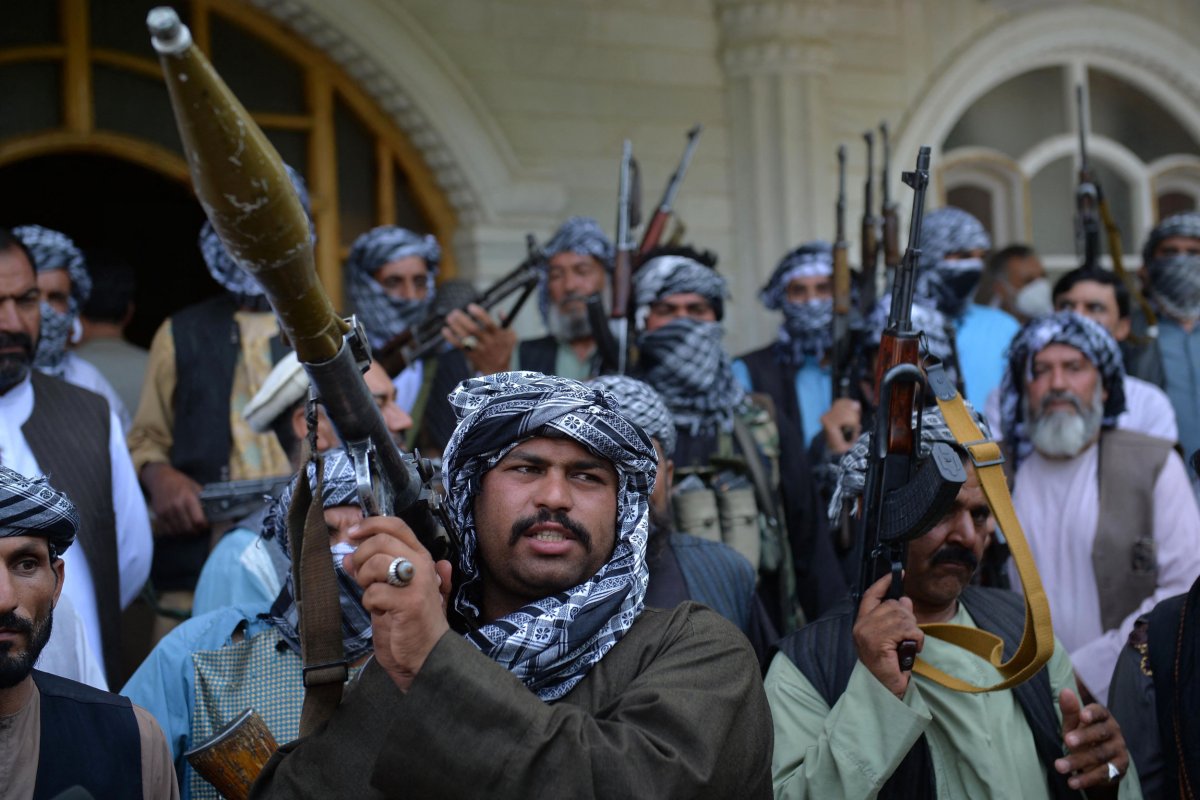As U.S. and Western forces gear up to depart from Afghanistan, the country's more than 40-year war enters its next phase. This is nothing new for the Afghan people. In the course of a century, they have seen British and Soviet conquerors exit, leaving various would-be kings, power brokers and warlords to fill the vacuum. Through it all, it has been the Afghan people who suffer. Even through continued occupation, America can't save them. Over the past 20 years the U.S.' presence has empowered warlords, enabled political corruption and fueled Taliban-led resistance—actually setting the stage for the war's tragic encore.
As it stands, the Kabul government and its security forces are crumbling due to motivational mismatch—not a withdrawal of American soldiers. Afghan soldiers and police primarily fight for pay, while the Taliban claim to fight for national liberation, and the warlords' militiamen purportedly defend their ethnic enclaves. Facing an uncertain future, coupled with the collapsing and kleptocratic Kabul government's inability to consistently pay its troops, some Afghan army units are simply evaporating. Meanwhile, the Taliban seemingly rise like water from the ground rather than one large and powerful wave.
The U.S.-constructed Afghan house of cards is finally facing its inevitable collapse. As this next phase of Afghanistan's tragedy begins, there's a visible percolation of deals between the Taliban and various warlords to control the region even as our troops roam the streets. Afghans are telling me that leaders like Rashid Dostum, Salahuddin Rabbani, Gulbuddin Hekmatyar and Karim Khalili—warlords often aligned with Washington for the last two decades—are now negotiating with the Taliban. These men have managed to maintain power inside their ethnic enclaves and communities for over 30 years while America raged a war on their soil. Many are also accused war criminals and chief drug lords. These paramilitary powerbrokers have deep ties to the CIA—some dating back to the 1980s anti-Soviet insurgency. And as the warlords maneuver to hold control, so too will U.S. powers, effectively keeping an eye and occupation in the region. This leaves President Ashraf Ghani's government on the outside looking in, as warlords and the Taliban divide Afghanistan's political and military spoils and the U.S. continues to conspire with or without troops.
It is worth remembering the Taliban's last rise to power in the 1990s to understand what may happen soon. I have often asked Afghans how the Taliban took control so quickly and seemingly efficiently 25 years ago. Their replies were usually singular: the Pakistani rupee. While they did fight and win militarily, the Taliban just as frequently bought out their adversaries and purchased local loyalty. In fact, the Taliban still receive some support from Pakistan. Islamabad prefers stability in its neighbor through the dissemination of power. Such a policy shift reflects the blowback cost to Pakistan in its decades-long desire to control Afghanistan: boomeranging violence, homegrown terror groups, millions of refugees, plus narcotics trafficking and addiction. The same goes for Iranian, Russian and Chinese machinations in Afghanistan.

In all likelihood, Afghan warlords will continue to control their Tajik, Uzbek and Hazara ethnic regions, and the Taliban will rule their traditional Pashtun regions—with tenuous understandings brokered in more mixed areas.
Ghani and his supporters will be the ones to pay the steepest price, as the Taliban will want something to show for their long and hard-won victory. Many in the government will lose their lives, while far more will be forced to flee. Thousands of everyday Afghans—like the interpreters who served with Western forces—having believed the promises, myths and lies spun by the U.S. occupation, will face much greater danger.
Continued combat will only engender the inevitable unintended consequences of war and beget greater violence. Both foreign and local attempts to achieve peace through war have reaped unimaginable suffering for Afghans and caused continuous region-wide instability. In the 1980s, American designs and desires for "victory" in Afghanistan actually fostered the rise of international terror groups—which consequently fueled the disastrous post-9/11 global war on terror.
Violence will not work and has never proven a lasting Afghan answer. At best, the Taliban-warlord deals of convenience and cynicism will produce fleeting—if merciful—ceasefires, offering ever-so-brief windows for stability and potential progress. What likely lays ahead is, in effect, a cruel and unjust peace.
Matthew Hoh is a senior fellow with the Center for International Policy and a member of the Eisenhower Media Network (EMN). He is a 100 percent disabled Marine combat veteran, and in 2009, he resigned his position with the State Department in Afghanistan in protest of the escalation of the war.
The views expressed in this article are the writer's own.
Uncommon Knowledge
Newsweek is committed to challenging conventional wisdom and finding connections in the search for common ground.
Newsweek is committed to challenging conventional wisdom and finding connections in the search for common ground.
About the writer
To read how Newsweek uses AI as a newsroom tool, Click here.








